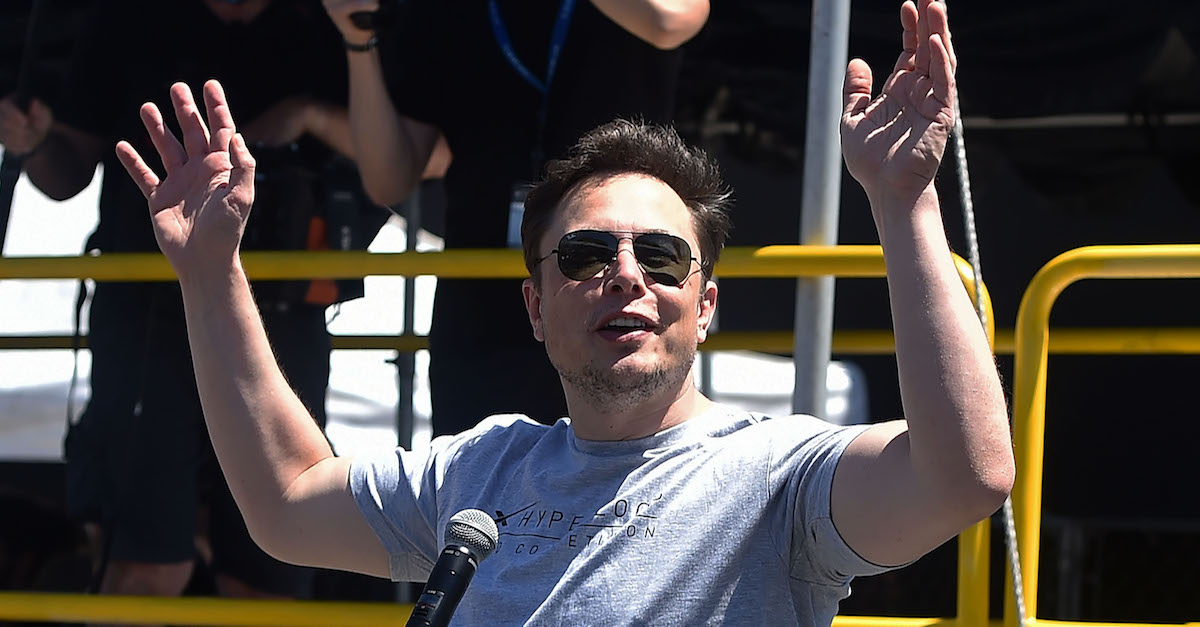
SpaceX, Tesla and The Boring Company founder Elon Musk speaks at the 2018 SpaceX Hyperloop Pod Competition, in Hawthorne, California on July 22, 2018.
Billionaire Tesla co-founder Elon Musk lost his effort to terminate his consent decree with the Securities and Exchange Commission on the grounds that the mandatory pre-approval of his tweets that could move stocks violates his First Amendment rights.
“With regard to the First Amendment argument, it is undisputed in this case that Musk’s tweets are at least presumptively ‘protected speech,'” U.S. District Judge Lewis Liman wrote in a 22-page ruling on Wednesday. “At the same time, however, even Musk concedes that his free speech rights do not permit him to engage in speech that is or could ‘be considered fraudulent or otherwise violative of the securities laws.'”
“One of the Wealthiest Individuals in the World”
The judge also noted that Musk voluntarily entered into the agreement with regulators.
“Moreover, to the extent that the consent decree imposes an additional restriction on Musk’s speech by requiring him to obtain pre-approval of his communications about Tesla, ‘parties can waive their First Amendment rights in consent decrees and other settlements of judicial proceedings,'” Liman wrote.
In August 2018, Musk told his then-22 million Twitter followers that he could take Tesla private at $420 per share, a price tag widely understood to be an in-joke for cannabis culture. Musk claimed that funding had been secured.
“The tweet allegedly was false: Musk had not discussed specific deal terms with any potential financing partners, and he knew the potential transaction was uncertain and subject to numerous contingencies,” the ruling notes. “His tweets caused Tesla’s stock price to jump by over six percent on August 7, 2018 and led to significant market disruption.”
Musk’s attorney Alex Spiro insists that his client was not being misleading.
“Nothing will ever change the truth which is that Elon Musk was considering taking Tesla private and could have—all that’s left some half decade later is remnant litigation which will continue to make that truth clearer and clearer,” Spiro told Law&Crime in an email, in reaction to the ruling.
That tweet sparked Musk’s eventual consent decree with the SEC on Oct. 16, 2018, which included a $20 million civil penalty and the pre-approval requirement. Musk claims that the agreement violated his right to be free of prior restraints and inappropriately permitted “boundless investigation of his speech” by regulators. He also alleged that he entered into under economic duress. “None of those arguments hold water,” Liman wrote, noting that Musk was “already a multibillionaire in 2018 and one of the wealthiest individuals in the world” at that time.
Within months, Musk once again sparked the SEC’s displeasure by tweeting in February 2019: “Tesla made 0 cars in 2011, but will make around 500k in 2019,” without seeking or receiving pre-approval. He then corrected that post with a second one that went through pre-approval: “Meant to say annualized production rate at end of 2019 probably around 500k, ie 10k cars/week. Deliveries for year estimated to be about 400k.”
“Bordered on the Risible”
Though Musk claimed the first tweet was merely “celebratory” and “a statement of pride and optimism,” Judge Liman scoffed in a footnote: “The position bordered on the risible.”
“A reasonable observer could certainly conclude that when the CEO of a Fortune 100 company tells millions of followers that his company ‘will make’ a specific production volume in the next year, the statement is not a casual one,” Liman added.
On Nov. 6, 2021, Musk courted Twitter controversy again with a spate of tweets, starting with one that read: “Much is made lately of unrealized gains being a measure of tax avoidance, so I propose selling 10% of my Tesla stock. Do you support this?” This, and other follow-up posts, did not go through the pre-approval process.
After the SEC issued subpoenas to investigate the matter, Musk moved to quash those subpoenas and terminate his consent decree, Liman denied both requests.
“Musk may wish it were otherwise, but he remains subject to the same enforcement authority—and has the same means to challenge the exercise of that authority—as any other citizen,” the ruling states. “Indeed, to conclude otherwise would be to hold that a serial violator of the securities laws or a recidivist would enjoy greater protection against SEC enforcement than a person who had never even been accused of a securities law violation. Musk points to nothing in the law or the language of the statute that would suggest that Congress intended such a perverse result.”
Musk recently made a deal to buy Twitter, the platform that got him into trouble with federal regulators. The billionaire also briefly got into legal hot water by tweeting that Vernon Unsworth, a British man who helped rescue Thai children trapped in a cave, was a “pedo guy.” The baseless claim against a stranger made to millions of Musk’s followers on Twitter sparked a defamation lawsuit from Unsworth.
Unsworth’s lawsuit ultimately failed after Musk apologized to the Brit for the insult, and a jury believed Musk’s argument the jibe was never meant to be perceived as a statement of fact.
Read the ruling, below:
(Image via Robyn Beck/AFP/Getty Images)